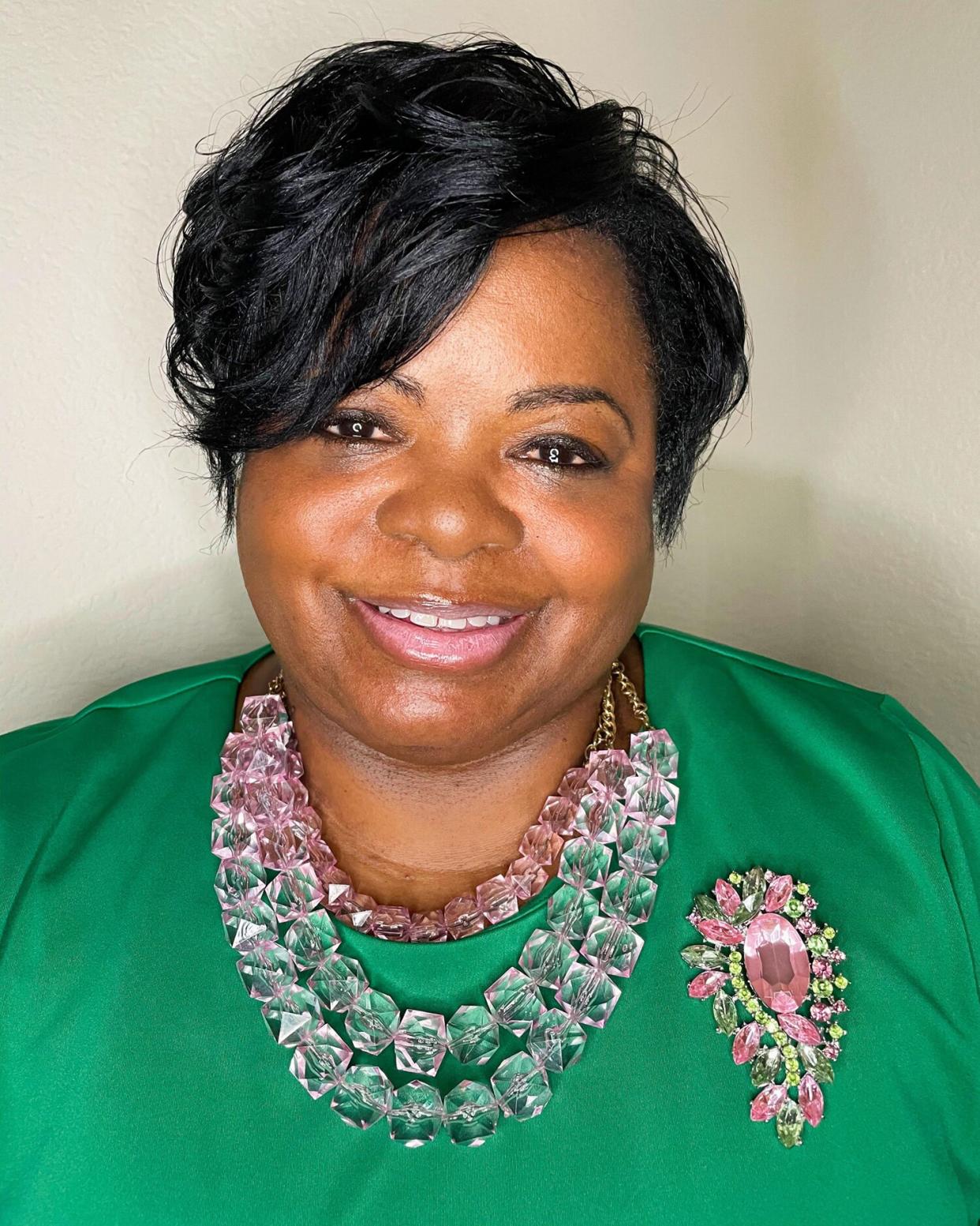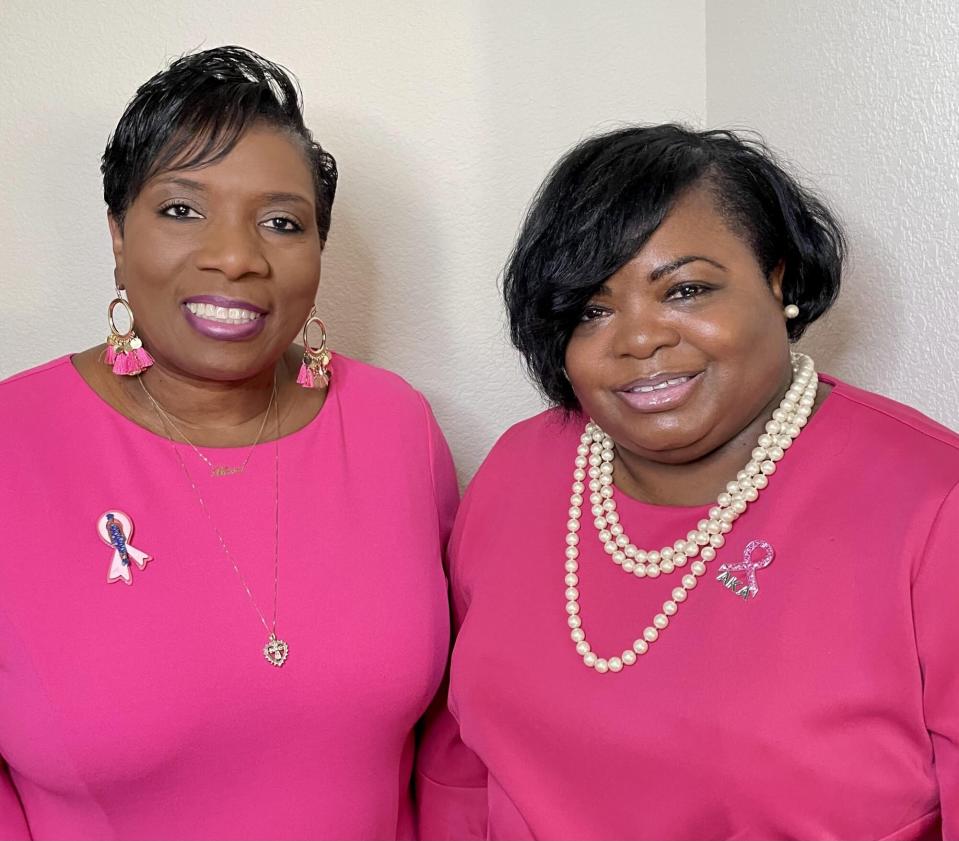Virginia Woman Builds Grassroots Campaign to Help Black Women Get Life-Saving Mammograms

Jasmine Pender
In 2012 Tanya Weaver learned a disturbing fact: The town of Portsmouth, Virginia, where she was working for the Virginia Department of Health, had the second-highest number of Black women over the age of 40 dying from breast cancer.
"I wanted to know why this was," says Weaver, 54. "So I started asking questions."
After conducting a small survey asking about women's familiarity with breast cancer prevention, she saw that the zip codes where women had access to the least information had the highest number of deaths related to breast cancer.
Weaver started talking with women from some of these low-income communities and having town hall meetings. "My findings were really startling — some of the women couldn't even pronounce 'mammogram', or they thought that a mammogram meant removing their breasts, or they didn't understand what breast cancer was about," she says.
"I found that when they did hear information, that it wasn't on a level that they could understand, so therefore, they didn't stick around to find out more information," Weaver says. "And there was a fear of the unknown."
RELATED: Marathoner Learns She Has Breast Cancer After Delaying Mammogram Due to COVID: 'I Didn't Feel Sick'
She wanted to do something, so she began hosting line dancing events on Friday nights at her church to teach women about breast cancer. They paused the music halfway through the night to encourage women to chat about what they knew. "We started educating them on the importance of getting a mammogram."
Each week, the crowd grew larger. Trust developed as well. "The initial group of women packed the church with their friends," says Weaver. 'They were like, "Hey, Ms. Tanya. This is my girlfriend. She hasn't had a mammogram either. She's over 40 years old. I told her she needed to come and listen to what you were saying.' "
Weaver created a database of women from these events and followed up with them about their annual screenings through phone calls, emails and postcards. Over the years she continued her outreach by setting up pink tables at city health fairs and hosting luncheons to create awareness.
She worked with Susan B. Komen and other organizations to provide free mammograms to women who qualified, and partnered with her job to bring in a local mammography vehicle to the parking lot once a month.
Throughout it all, she was advising women on how to work through the barriers of breast cancer prevention, whether it be lack of information, transportation, insurance — even doctors.
For example, when she realized many of the women getting free mammograms didn't have a primary care physician to receive the mammogram results, Weaver worked with her office to find doctors who agreed to read the mammograms and meet with the women.
Weaver says that her efforts had taken a personal turn early on. "When I started the initiative in my church, I asked a group of women to just kick it off with me and go have a mammogram. My sister was one of them. And my sister was called back and diagnosed with breast cancer."

Jasmine Pender Tanya Weaver (right) and her sister Kimberly Pender.
Weaver's sister Kimberly Pender, now 53, was diagnosed when she was 43. Her cancer was at a later stage and she had a double mastectomy. Weaver notes that Pender had not been putting off her mammograms. She got them annually, but there had been changes since her last screening.
There is also a history of cancer in their family, says Weaver. Their grandmother is a breast cancer survivor and their mother had colon cancer, which has metastasized to lung and brain cancer.
For all of these reasons, Weaver remains committed to the cause.
She says things have gotten better since she started these efforts — but not much. "I would love to say that it has changed a lot, but it hasn't changed a lot," she admits. "The education is still not there and the resources are still not there. It's still the grassroots efforts out here, people on the ground, just trying to make sure that women are getting the adequate care that they need with these mammograms."
RELATED: Shannen Doherty Shares 'Truthful' Photos of Her Cancer Journey: 'I Hope We All Find Humor in the Impossible'
Weaver has since helped at least 448 women receive mammograms, 39 of whom were diagnosed with breast cancer. "To my knowledge, 36 are still alive," says Weaver.
"I saw a lot come out of this breast cancer initiative of giving women hope, of them feeling more assured about themselves, more positive, more eager to learn more about their health and what was out there for them," she says.
She is grateful for the opportunity to positively impact the lives of other Black women.
"I'm just a concerned citizen who saw a need for a discussion to find out why these women weren't getting mammograms."

